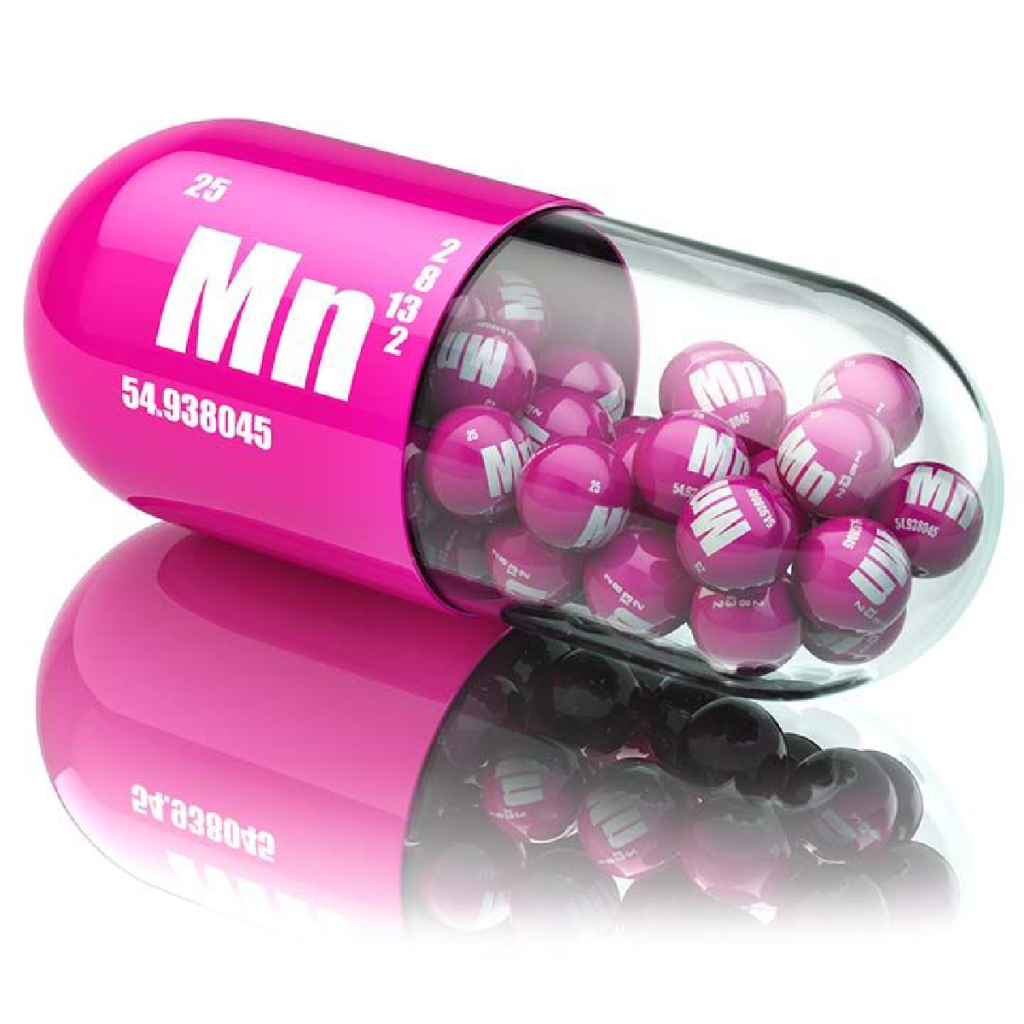Discover the impact of manganese on metabolism and how this essential mineral plays a crucial role in various bodily functions.
How Does Manganese Affect Metabolism?
Ah, manganese! It may sound like a fancy ingredient straight out of a chemistry lab, but it actually plays a crucial role in our body’s metabolism. Yes, that’s right — this essential trace mineral has the power to influence our energy production, nutrient breakdown, and so much more. Let’s dive in and uncover the fascinating relationship between manganese and our metabolism!

Understanding the Role of Manganese in the Body
As the saying goes, “Good things come in small packages,” and manganese is no exception. Despite being needed only in trace amounts, this little mineral is a big player when it comes to keeping our bodies in tip-top shape.
Let’s dive deeper into the fascinating world of manganese. Did you know that manganese acts as a cofactor for various enzymes? Enzymes are like the workers in our body, responsible for carrying out essential chemical reactions. Manganese steps in to assist these enzymes, ensuring they function properly and efficiently.
One of the key metabolic processes that manganese helps with is the metabolism of carbohydrates. Carbohydrates are our body’s primary source of energy, and manganese plays a crucial role in breaking them down into usable forms. Without manganese, our bodies would struggle to efficiently convert carbohydrates into fuel, leaving us feeling sluggish and tired.
But that’s not all! Manganese also lends a helping hand in the metabolism of amino acids. Amino acids are the building blocks of proteins, which are essential for growth, repair, and maintenance of our body tissues. Thanks to manganese, these amino acids can be properly metabolized, ensuring that our bodies can effectively utilize the proteins we consume.
Now, let’s talk about cholesterol. We often associate cholesterol with negative connotations, but did you know that our bodies actually need it in moderation? Manganese plays a role in cholesterol metabolism, helping to regulate its levels. By ensuring a healthy balance of cholesterol, manganese contributes to overall cardiovascular health.
But manganese doesn’t stop there. This mineral goes above and beyond by also supporting the production of antioxidants. Antioxidants are like the superheroes of our body, fighting off the harmful effects of free radicals. Free radicals are unstable molecules that can damage our cells and contribute to various diseases. Manganese helps in the production of antioxidant enzymes, providing our cells with an extra layer of protection.
So, as you can see, manganese is truly a multitasker when it comes to our body’s well-being. Despite its small presence, it plays a vital role in various metabolic processes, from carbohydrate and amino acid metabolism to cholesterol regulation and antioxidant production. Next time you enjoy a meal rich in manganese, remember the incredible work this little mineral is doing behind the scenes to keep you healthy and thriving.
The Essential Trace Mineral: Manganese
Now, let’s take a closer look at manganese and its rockstar status in our bodies. While it may not be as popular as other nutrients, like vitamin C or iron, manganese plays a crucial role in maintaining our overall health. Without enough manganese in our system, our metabolism could go haywire.
By stimulating enzyme activity, manganese helps convert nutrients into usable energy. So, when you’re feeling perkier than a pack of jumping beans, you can thank manganese for its tireless efforts!
But manganese’s importance doesn’t stop there. This trace mineral also contributes to the formation of connective tissues, such as bones and cartilage. It helps maintain the structural integrity of these tissues, ensuring that our bodies stay strong and flexible.
In addition, manganese is involved in the production of collagen, a protein that plays a vital role in wound healing. When you have a cut or scrape, manganese helps facilitate the repair process by supporting the formation of new skin cells and tissues.
Furthermore, manganese acts as an antioxidant, protecting our cells from damage caused by harmful free radicals. It helps neutralize these unstable molecules, reducing the risk of oxidative stress and inflammation in our bodies.
Did you know that manganese also plays a role in brain health? It is involved in the synthesis of neurotransmitters, which are chemical messengers that allow communication between nerve cells. Adequate manganese levels are essential for optimal brain function and cognitive performance.
In addition to its physiological functions, manganese is found in various food sources. Foods rich in manganese include nuts, seeds, whole grains, legumes, leafy green vegetables, and certain fruits. Incorporating these foods into your diet can help ensure an adequate intake of this essential trace mineral.
So, while manganese may not always steal the spotlight, its contributions to our health and well-being are undeniable. From supporting metabolism and energy production to promoting tissue repair and brain function, this trace mineral truly deserves its rockstar status in our bodies.
Manganese and the Human Body: A Complex Relationship
We all love a little mystery in our lives, and the relationship between manganese and the human body is no exception. This duo has a complex bond that goes beyond simple nutrient breakdown.
Aside from metabolism, manganese also plays a role in skeletal development, blood clotting, and even brain function. You see, manganese is like that friend who can’t resist dipping their toes into all sorts of activities. It just can’t stay in its metabolic lane!
Let’s delve deeper into the fascinating world of manganese and its impact on skeletal development. Manganese is an essential trace mineral that is involved in the formation and maintenance of healthy bones. It helps in the production of collagen, a protein that provides structure and strength to bones. Without sufficient manganese, our bones may become weak and brittle, making us more prone to fractures and osteoporosis.
But manganese doesn’t stop there. It also has a crucial role in blood clotting, a process that prevents excessive bleeding when we get injured. Manganese is needed for the activation of certain enzymes involved in the clotting cascade, ensuring that our blood can form clots efficiently and effectively.
Now, let’s shift our focus to the brain. Manganese plays a vital role in brain function, particularly in the production of neurotransmitters. These chemical messengers allow nerve cells to communicate with each other, enabling proper cognitive function, mood regulation, and even motor coordination. Without sufficient manganese, our brain’s ability to transmit signals may be compromised, leading to cognitive impairments and neurological disorders.
It’s truly remarkable how manganese, a seemingly small player in the realm of nutrients, has such a wide range of impacts on our body. From skeletal development to blood clotting and brain function, this mineral is involved in numerous essential processes that keep us healthy and functioning optimally.
So, the next time you come across manganese, remember that it’s not just a nutrient for metabolism. It’s a multi-talented mineral that wears many hats in the human body. Its intricate relationship with our physiology is a testament to the complexity and wonder of the human body.
The Impact of Manganese on Metabolic Processes
Get ready to unleash the power of manganese on your metabolic processes! This little mineral packs quite a punch when it comes to keeping your body functioning like a well-oiled machine.
Manganese and Energy Production
Hold onto your hats, folks! Manganese is here to amp up your energy production. By aiding in the breakdown of carbohydrates and fats, manganese helps fuel your activities and keeps you feeling energized throughout the day.
Next time you’re crushing your workouts or zooming through your daily to-do list, take a moment to show some love to manganese. It’s the secret superstar behind your energetic endeavors!
Manganese’s Role in Metabolizing Nutrients
Your body is a master at breaking down nutrients, and you can thank manganese for keeping things running smoothly behind the scenes. This mighty mineral helps metabolize amino acids, contributing to the growth and repair of your body’s tissues. Plus, it also assists in the breakdown of cholesterol, ensuring that your heart and arteries stay in tip-top shape.
So, the next time you enjoy a protein-packed meal or embrace those heart-healthy fats, remember to give a shout-out to manganese for its hard work in getting those nutrients where they need to go!
Manganese Deficiency and Metabolism
While manganese is a superhero in our metabolic story, there can be situations where its presence may be lacking. Enter manganese deficiency — a condition where your body is low on this essential mineral.
Symptoms of Manganese Deficiency
When it comes to manganese deficiency, your body may start waving a few red flags to get your attention. Symptoms can manifest as decreased bone density, poor growth, and impaired glucose metabolism. These warning signs are your body’s way of saying, “Hey, we need some more manganese here, please!”
How Manganese Deficiency Affects Metabolic Functions
Without enough manganese in your system, your metabolic functions can take a nosedive. Nutrient breakdown may become sluggish, leading to decreased energy production and compromised overall health. Think of it as a traffic jam in your metabolic highway — things just aren’t flowing as smoothly as they should.
To keep your metabolism firing on all cylinders, make sure to include manganese-rich foods in your diet or consult with a healthcare professional who can guide you on manganese supplementation, if necessary.
Manganese Toxicity and Its Effects on Metabolism
Just like too much of a good thing can become a bad thing, excessive manganese in your system can lead to toxicity. This is where things can get a little dicey for your metabolism.
Understanding Manganese Toxicity
Manganese toxicity occurs when high levels of this mineral accumulate in your body over time. While it’s rare, it’s essential to understand its potential consequences.
Symptoms of manganese toxicity may include neurological issues, such as tremors and muscle stiffness. So, while manganese is a crucial player in your metabolic orchestra, keeping its levels in check is just as important to ensure the harmony of your overall well-being.
Consequences of Excessive Manganese on Metabolism
When there’s too much manganese knocking on metabolism’s door, things can quickly spiral out of control. Excessive manganese can interfere with the absorption of other essential nutrients, such as iron and calcium. This unwanted interference can disrupt the delicate balance your body needs to keep the metabolic party going.
To maintain a balanced metabolism, it’s vital to keep manganese levels within the recommended daily intake. More on that in the next section!
Balancing Manganese Intake for Optimal Metabolism
Now that we’ve danced our way through the intricate steps of manganese and metabolism, it’s time to reveal the secrets to a harmonious manganese intake.

Recommended Daily Intake of Manganese
To keep your metabolic engine purring, it’s generally recommended that adults get around 2.3-2.6 milligrams of manganese per day. However, the optimal intake may vary depending on age, sex, and individual needs. So, be sure to consult with a healthcare professional or registered dietitian for personalized guidance.
Dietary Sources of Manganese
Luckily, manganese loves to hang out in various foods, making it easier for you to reach your daily intake. Foods such as nuts, seeds, whole grains, legumes, and leafy greens are fantastic sources of this mighty mineral.
So, why not turn your meals into a manganese-filled extravaganza? Whip up a delicious spinach salad sprinkled with pumpkin seeds, or enjoy a hearty bowl of oatmeal topped with sliced almonds. Not only will your taste buds thank you, but your metabolism will feel the love, too!
There you have it! The mysterious relationship between manganese and metabolism has been revealed. So, embrace the power of this trace mineral and let it fuel your metabolic fire. Remember, manganese may be small, but its impact on your body is nothing short of extraordinary!







